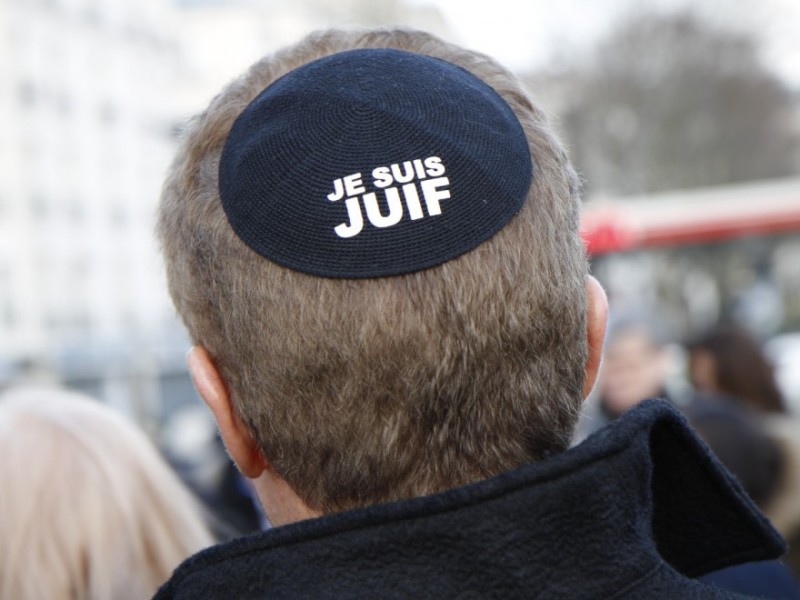Danielle V. Minson — Raising the Bar

What Jacques Told Me: A Parisian Jewish Story
Paris hostages: ‘We had to leave Europe as soon as possible’
On Sunday morning, I woke up and saw an email from Jacques, a French man I had met the previous week during a Solidarity Mission to Paris organized by the Jewish Federations of North America.
Jacques and his wife Sophie met with us because Sophie had been taken hostage while shopping at the Hyper Cacher kosher supermarket in January. Ordered by the gunman to bring up all the customers hiding in the walk-in freezer, she brought out only three, who had volunteered to go with her, and convinced the gunman not to check for others. He then asked who among the customers were Jewish. Sophie raised her hand.
Sadly, Jacques’s morning email informed me of new terrorist attacks in Denmark. They had happened too late to make the Sunday papers. So he notified me before the media did.
The reason Jacques wrote me a personal email is that when I’d met him and Sophie, they had told me that the trauma of the terrorist attack targeting the Jewish community had made them consider leaving France.
In his email on Sunday, Jacques said that the murders in Denmark were the last straw. Those attacks, which also brought death to the Jewish community, had convinced them that their family “had to leave Europe as soon as possible.”
The first attack in Denmark was at an afternoon event celebrating free speech. One person was killed and three police officers were wounded. Danish police believe that the intended target may have been Lars Vilks, an artist who has received death threats for drawing images of the prophet Muhammad.
Just hours later, a Jewish man, Dan Uzan, was shot in the head and killed, and two police officers were wounded, in a shooting by the same man in front of Copenhagen’s Krystalgade synagogue. Uzan was part of a security patrol guarding the synagogue while a bat mitzvah took place inside.
Both the attacks in France and Denmark were double attacks—one against a symbol of free speech and the other against a Jewish community site.
What is the linkage between free speech and the Jewish community in these European countries? The inclusion of Jews in European society has long been a barometer of how free and open that society is. What separated the modern European state from its medieval past was the promise of equality. Jews had been denied equality for centuries—and were legally prohibited from joining most professions, owning land, or serving in government. So Europe’s success in integrating the Jewish community has long been the measure of the overall success of European societies. The Jewish community, in essence, inherited a symbolic role in Europe’s struggle to realize its Enlightenment vision of a free and open society.
This explains why after the Paris attacks, French Prime Minister Manuel Valls proclaimed, “France without the Jews is not France. The French Republic will be judged a failure.”
After the horror that they suffered, we can understand why Sophie and Jacques would want to take their family out of France. But the symbolic role of the Jewish community makes it important that the situation changes so that the more half a million Jews in France stay. They have become a “canary in the coal mine.” The question is whether Europe’s societies will remain open enough for these canaries to go on breathing.

